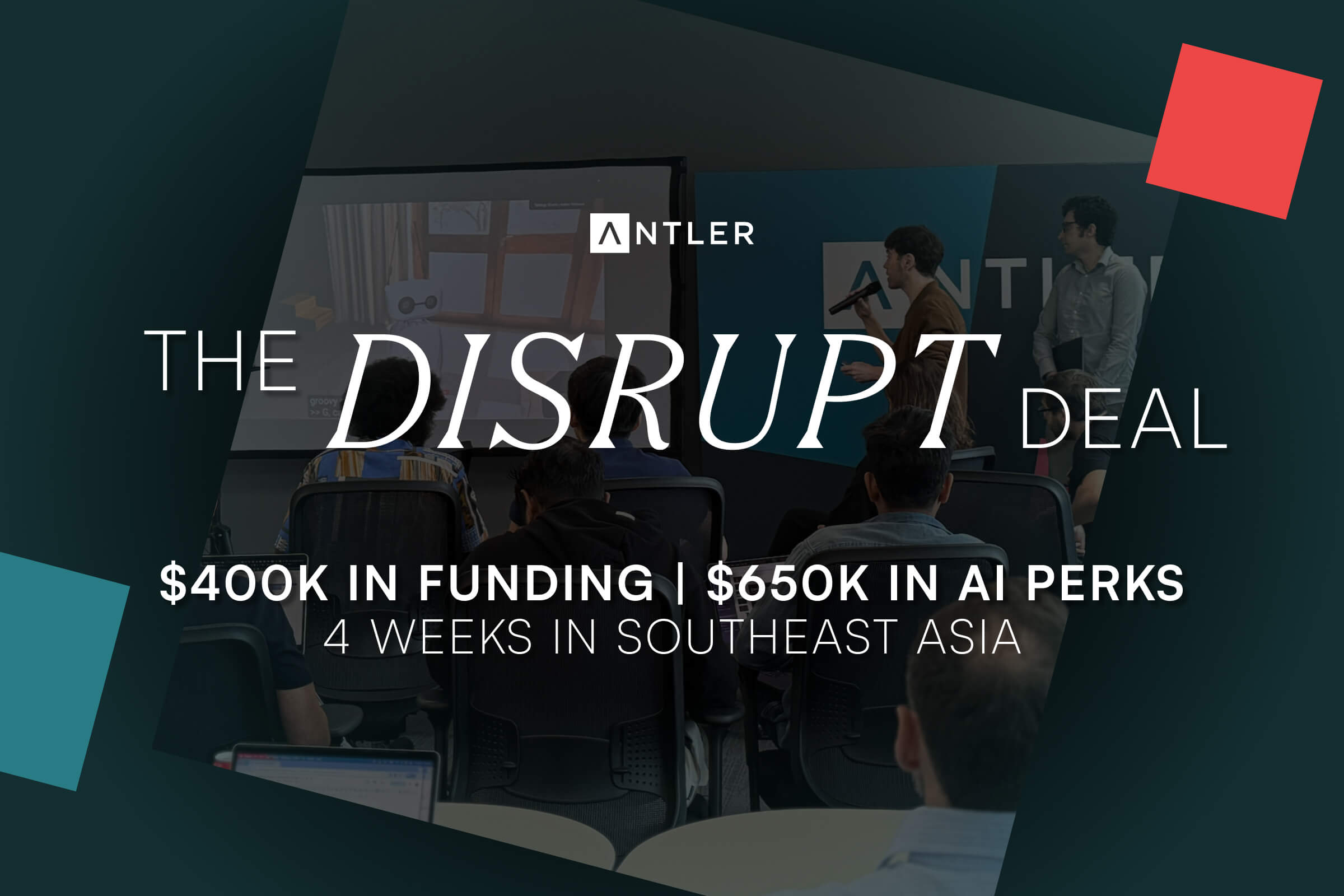Welcome to Antler's circles series, where we bring industry leaders, founders, and experts working in the same sector together to problem solve, share emerging trends and technologies. Through this series, Antler will provide unparalleled access to closed room discussions around the challenges and opportunities experienced by those innovating at the forefront of the industry.
1. Fintech everywhere
While Fintech is estimated to represent c. 14% of global venture, the category is becoming at once more omnipresent, broader and more subtle, with a16z recently commenting that every start-up will eventually become a fintech company because of the need to embed transactional capabilities. Uber is often referenced as an example of this. In Southeast Asia, Grab and GoJek, originally ride-hailing apps, are offering payments. With a user base of 850m, what might TikTok look like if micropayments were to become a feature? The diversity of opportunities is huge, with Bain recently commenting that fintech joins the internet, cloud and mobile as the fourth major platform technology.
2. Dealing with legacy
Financial architecture is changing fast with start-ups able to build quickly and, thanks to cloud computing, at low cost. The pace of evolution of incumbent banks and financial institutions is constrained by significant regulation and dated technology. For start-ups, education on new, disruptive trends is key to building trust and changing mindsets at legacy organisations. This contrast in approaches to innovation leaves many existing financial offerings vulnerable to the deflationary effects of disruption. AI will play a key role in this, as currently observed with the disruption of Credit Rating agencies.
3. Price and regulatory arbitrage
Following from the above, this might equally be called time and efficiency arbitrage. Legacy organisations governed by tight regulations have slow and cumbersome procedures that are being displaced by quick moving start-ups - speeding up the process and reducing the costs of mortgage applications, using AI to accelerate lending decisions, pay on demand for no more monthly pay days, trade finance and working capital management, to mention but a few.
4. Democratisation of access
Access remains the preserve of the privileged and the few. Starting with banking, it is estimated that 1.7bn adults globally remain unbanked. Following this, how to provide credit for somebody with no history? AI now allows for real time measurement of credit scores. Separately, Cambridge Associates in Q1 2020 published a report recommending an allocation to venture capital of 15%, reflecting the exciting, high-growth technology companies in private markets. How to democratise access to this? With real-estate prices in major cities four times the level of 20 years ago, how to democratise access to that most basic of human needs, shelter?
5. The death of cash
Already underway for some time, the death of cash has been expedited by COVID19, primarily due to its acquired status as a transmitter of disease. The share prices of payments businesses have reflected this bonanza with Paypal alone worth close to the market capitalisation of the entire European banking sector. In a rare instance where both regulators and investors are aligned, the central banks are encouraging this migration not least because cash is the lifeblood of the black economy and digitisation enables more efficient collection of taxes. So too, the introduction of CBDCs (Central Bank Digital Currencies) is helping establish the credentials of cryptocurrencies, perhaps reminiscent of where equity markets were 20 years ago. Where institutions today own 80% of the S&P 500, this number was just 5% in 1940. The institutionalisation of cryptocurrencies is likely to be much quicker in today's compressed time frames.
6. Modularity and atomisation of financial services
This is particularly visible in insurance with product-driven innovation reacting to customized demand. Why insure a car throughout the year for theft and collision when collision may only be required on driving days? This extends to pay as you go insurance for gig workers - the fastest growing workforce in the world. We can now rely on real-time data collection enabled by IOT, to package and price such offerings. Unbundling of "time" like this is deflationary, but as one market shrinks, another grows, in new niche areas such as IVF insurance.
7. Search for yield
In October 2020, Goldman Sachs reported on Bloomberg that while a traditional 60/40 portfolio has delivered 7-8% annualised returns over the last 10yrs, this is forecast at no more than 2% for the coming decade. The Financial Times also talked of this "nuclear winter" for 60/40 in September 2020. This is powering allocation to alternative asset classes, evidenced in the seismic new legislation introduced in the US in May 2020 allowing 401K pension plans to invest in venture and buyout. This makes sense - if these pools of capital allocate 10% of their capital to buyout and venture, which propose to earn 30% annual returns, then they can achieve 3%, or half of their 7% target, with 10% of their capital. The development of digital and cryptocurrencies will also provide yield opportunities. We expect to see bigger capital allocation to innovation and venture in the coming years.
8. ESG everywhere
Investment opportunities in any asset class are increasingly being viewed through an ESG and Impact lens, driven by significant demand for sustainable investments. Reliable data and authentic measurement of this, however, remain elusive and hard to come by. Day to day we see progress with initiatives such as real time measurement of carbon footprints being integrated with payments apps to allow for offsets. More broadly, the growing reach of ESG will continue to drive allocation of capital and represents a significant opportunity.
This article is based on the Antler circles industry discussions led by the founders of Antler's portfolio companies, external industry leaders and investors.
If you've been inspired to build a company that addresses one of the challenges or opportunities listed above, apply to join Antler. Antler enables and invests in exceptional people building the defining companies of tomorrow. Learn more here.












